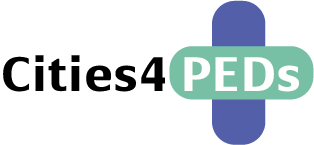Are you developing Positive Energy Districts (PED)? Are you working on neighbourhoods’ regeneration to decarbonise buildings and improve quality of life? Join us to discuss the methodology developed by the Cities4PEDs’ partners to make sure to ask yourselves the key questions at the adequate time. This is key to ensure progress along a too-often complicated journey.
For two years, the cities of Brussels, Vienna and Stockholm have been collaborating with experts from research, innovation and citizen participation. They jointly investigate how cities can adapt and use planning tools and engagement instruments so that urban development results in neighbourhoods that produce more energy than they consume.
These three cities and their partners would like to present and discuss with you the methodology they designed for PED development. During this interactive workshop, you will learn how the methodology has been applied in Vienna as a case study and you will share your own approach. In addition, considerations for further work on PED development will be debated.
Draft agenda:
| 14:00–14:05 | Welcome and introduction on Cities4PEDs |
| 14:05–14:25 | Presentation of the Viennese case (incl. the city’s targets, how the city is organised, what the districts looks like) |
| 14:25–15:00 | Application of the ‘game’ methodology for Vienna and feedback from other cities |
| 15:00–15:30 | Highlight of some of the tools and strategies (‘playing cards’) and Q&A |
| 15:30–15:45 | Break |
| 15:45–16:00 |
Which considerations for further PED development? – Consideration on the mobilisation of local actors: e.g. How to avoid that renovation (and thus value increase) leads to gentrification in existing districts? |
| 16:00–16:45 | How to address these considerations? Parallel sessions |
| 16:45-17:00 | Plenary conclusions |
